 Physical Ed, Psychology
Physical Ed, Psychology  1 Comment
1 Comment Darkness, My Old Friend
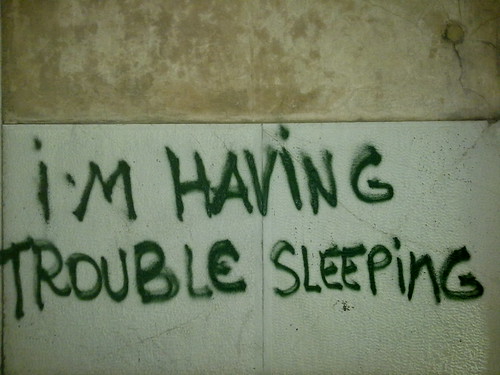
The house is so quiet, the ticking clock sounds like drumbeats. Darling Husband is blessed with sleep when and where he wants it. The boys are sleeping again after a mumbled request for help getting the blankets resituated. Even the cat is asleep peacefully in the lining of my motorcycle jacket.
But I’m awake. This is the third night in a row I’ve failed to sleep past 3:00 a.m..
I wish it were unusual.
Sleep and I have a complicated relationship. I remember being insomniac as young as nine years old, so there’s something very deeply rooted in me that conflicts with sleep. In terms of basic biology, my fibromyalgia both requires more sleep to prevent pain and provides pain which prevents me from getting more sleep. The less sleep I get, the more I hurt–it’s as simple as that. I’ve also had a sleep study done, and was told I have the worst sleep architecture the tech had ever seen. At various points, I averaged only 20 minutes a night in REM sleep, which is where restoration takes place. It feels like a well that never refills.

I have a feeling my sleep architecture looks something like the top one.
No fewer than two dozen doctors have told me how important “sleep hygiene” is to beating insomnia. I’ve looked at them with flat eyes and nodded grimly. They don’t understand this at all. I have a bedtime routine, mostly built around a few minutes reading a trashy romance. The easy-to-understand story and comforting predictability help me downshift from my brain’s day speed to one where I can finally fall asleep. I need dark, the white noise of a fan, covers (no matter how hot it is, I can’t sleep without the pressure of at least a sheet or afghan), and luck. None of this is uncommon to autistics, as I understand.
I’m faced with the oceanic expanse of unfilled hours more frequently than I’d like. As many before me have joked, the one thing we really need are more hours of the day to consider all the choices we’ve made in our lives. But I’m fairly happy with the choices I’ve made, so it’s memories that play in my head when the world has put its many stimuli to sleep for the night. I fill that space with books and documentaries. Sometimes I write, or stitch, or crochet, or visit with friends who are also awake. I trying to teach myself not to fear I’ll wake up even more fully. Some theories even say a broken night’s sleep is historically A Thing.
At the root of my problem with sleep and the dark, still hours is this: I listen. Constantly. Hypervigilance is real, and very difficult to control. I listen for children’s cries–even those of babies long since grown. I listen for creaks and shudders, and the hollow sound of a door or window sliding open, even though I know they’re firmly locked. I listen for the crackle of fire, or the sudden crash of disaster, always ready to spring into action. I listen for the faint whine of the TV that tells me Connor’s awake in the night too, perpetuating the cycle of insomnia for another generation. I listen for the phone, and count the souls in peril–physical or mental–and ward against a fateful call.
Right now, I can’t sleep because it’s been exactly one year since Connor was actively suicidal. I lived the months of February and March last year constantly waiting, listening, and wondering this: “Could I get to him fast enough to save him?” This weekend will mark the one-year anniversary of his entry into the partial hospitalization program that saved his life. He’s been at the highest behavior level at school for 21 straight school days. Things couldn’t be more different this March than they were last March.
But my body doesn’t know that. My body remembers that, when the last snows come and go, and the ground and air are saturated with moisture and possibility, I must remain alert. I can’t afford to sleep, the memories embedded in my bones say. This is the time you need to watch, listen, wait. Fear. Hope. Pray. I have other memories seated deeply in my body too, ones that make me tense in May more than 20 years after my sexual assault, or the tension that rides me on and off in the summer, when the heat triggers memories of my helpless, hopeless season a few years back. My mind can fold things away, but my bones and flesh remember.
So sleep and I are more sparring partners than friends, but I’m okay with that. I don’t get much solitude in my life, and insomnia certainly provides that in abundance. And maybe the lesson is that it’s not worth fighting with stubbornness and medication and “sleep hygiene.” This is me, and I don’t sleep like normal people. What do I get for it? Memories long buried, the surety that everyone I love is safe for tonight, and the intimate knowledge of the heart-deep chambers of night’s darkness.

 This year, I’m trying to do something about this. I’ve submitted proposals to both Origins and Gen Con–the two conventions I’m planning to attend this year–to establish a Sensory Break Room for people who are physically or mentally challenged by the rigorous environment of the con.
This year, I’m trying to do something about this. I’ve submitted proposals to both Origins and Gen Con–the two conventions I’m planning to attend this year–to establish a Sensory Break Room for people who are physically or mentally challenged by the rigorous environment of the con. The room will be screened off, instead of requiring users to open and close a clanky door. The lights will be kept quite low, probably too low to read properly, but there may be some soft, shifting colored lights to focus on. No music or other noise will be permitted, but a small fan or ionizer will run to provide white noise as an auditory buffer. Nobody will bug anyone else, but neither is it a nap room. If someone falls asleep, the monitor will wake them up after five or ten minutes, and each user will be responsible if they accidentally sleep through an event they’re supposed to attend. I’m hoping that the folks most likely to use it will be generous in bringing some adaptive tools to share–weighted blankets, exercise balls, fidgets, and other comforting objects.
The room will be screened off, instead of requiring users to open and close a clanky door. The lights will be kept quite low, probably too low to read properly, but there may be some soft, shifting colored lights to focus on. No music or other noise will be permitted, but a small fan or ionizer will run to provide white noise as an auditory buffer. Nobody will bug anyone else, but neither is it a nap room. If someone falls asleep, the monitor will wake them up after five or ten minutes, and each user will be responsible if they accidentally sleep through an event they’re supposed to attend. I’m hoping that the folks most likely to use it will be generous in bringing some adaptive tools to share–weighted blankets, exercise balls, fidgets, and other comforting objects. 
 Friday is the Autistic Day of Mourning, a day to honor the autistic people who have lost their lives to the desperate or careless actions of parents and guardians, or to the crushing weight of the sensory world that seems inescapable by any other means but death.
Friday is the Autistic Day of Mourning, a day to honor the autistic people who have lost their lives to the desperate or careless actions of parents and guardians, or to the crushing weight of the sensory world that seems inescapable by any other means but death.
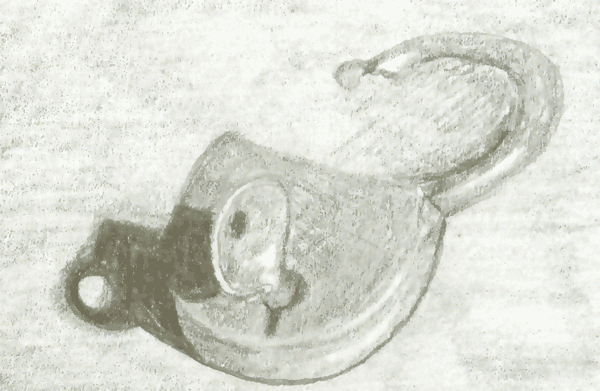
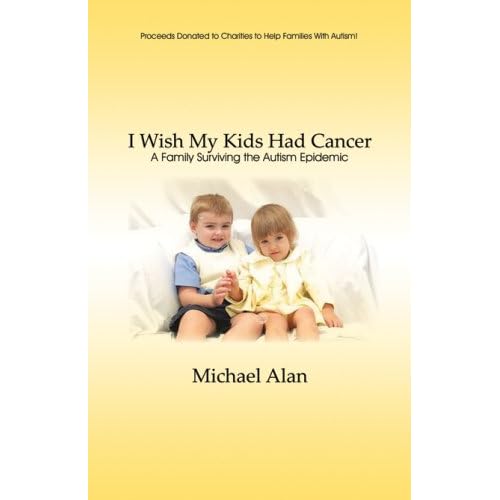
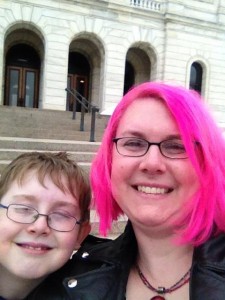
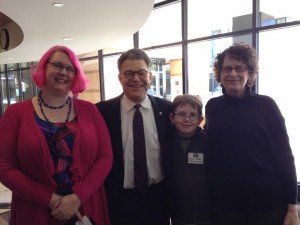

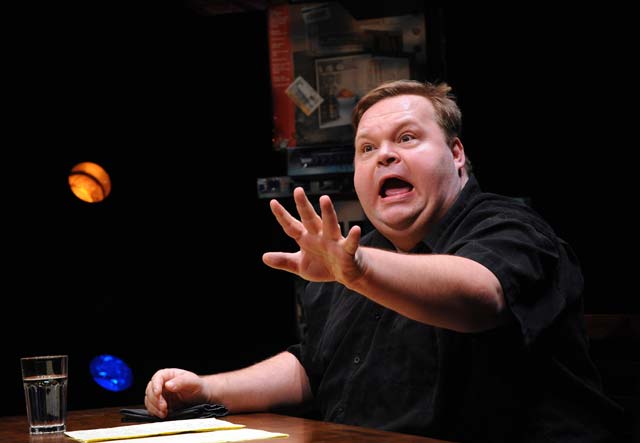 Or worse: you could end up like Mike Daisey. He’s a performer who got a lot of attention for a one-man show called
Or worse: you could end up like Mike Daisey. He’s a performer who got a lot of attention for a one-man show called 
 Almost every good and wonderful thing about the winter holidays is a sensory delight. The smells of cold snow and freshly cut pine and butter-rich cookies tingle in our noses. Pipe organs and French horns and jingly bells and heavenly choirs and crinkly paper delight our ears with musical sounds rarely used in the rest of the year. Velvety and satiny fabrics combine with delightfully scratchy sweaters and fuzzy hats in our special party clothes. We write ourselves dietary hall passes for the dozens of special, luscious holiday foods. And the lights…oh, the lights! Who doesn’t gasp and crane at the sight of an elaborately decorated building or brilliantly lit tree?
Almost every good and wonderful thing about the winter holidays is a sensory delight. The smells of cold snow and freshly cut pine and butter-rich cookies tingle in our noses. Pipe organs and French horns and jingly bells and heavenly choirs and crinkly paper delight our ears with musical sounds rarely used in the rest of the year. Velvety and satiny fabrics combine with delightfully scratchy sweaters and fuzzy hats in our special party clothes. We write ourselves dietary hall passes for the dozens of special, luscious holiday foods. And the lights…oh, the lights! Who doesn’t gasp and crane at the sight of an elaborately decorated building or brilliantly lit tree?

 I’ve been working on the campaign for marriage equality here in Minnesota since March, and
I’ve been working on the campaign for marriage equality here in Minnesota since March, and 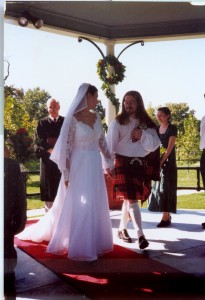
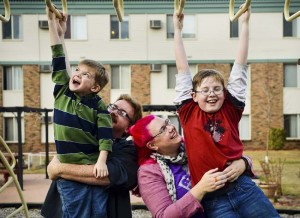

 This Thursday is
This Thursday is 


